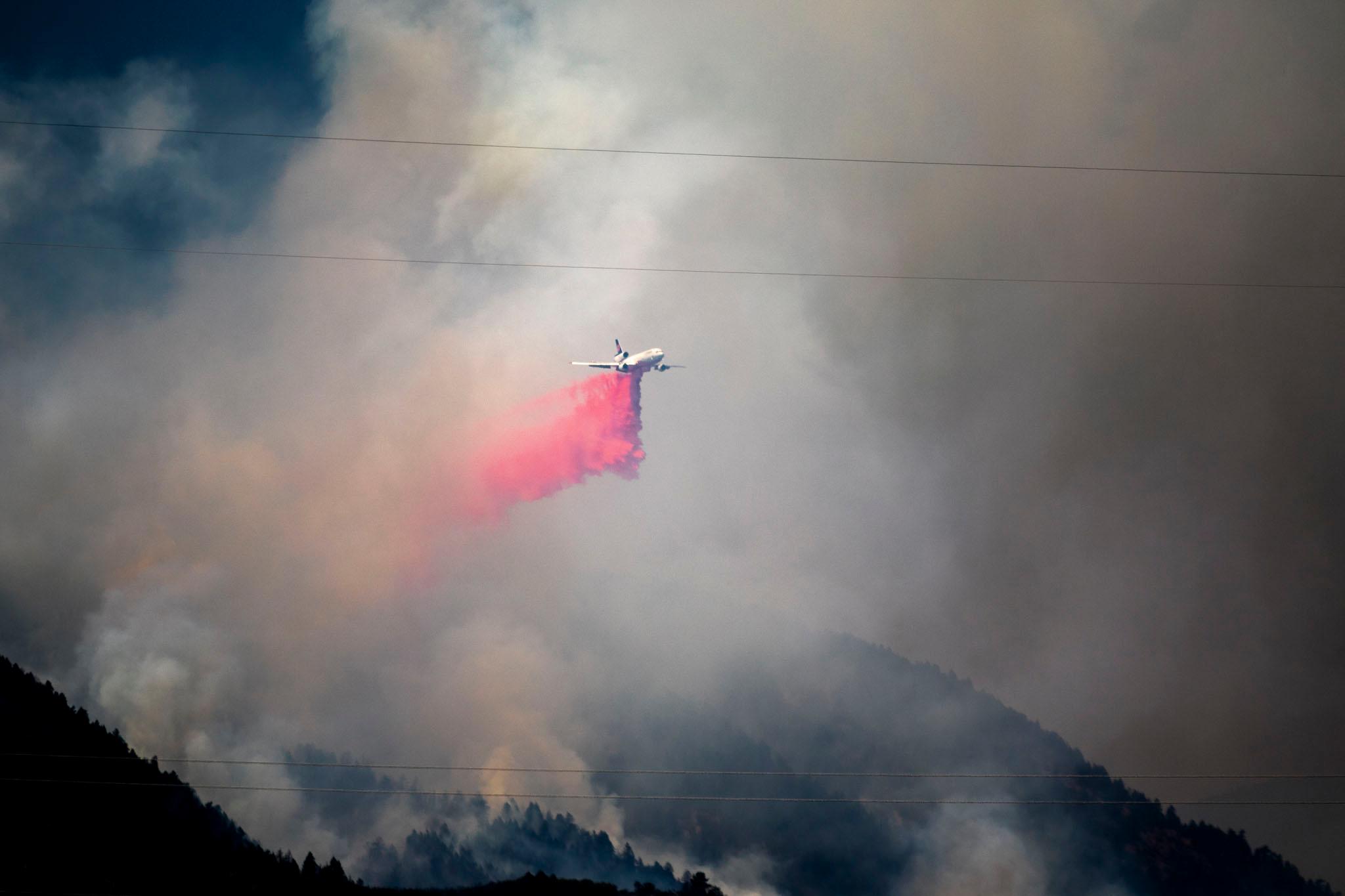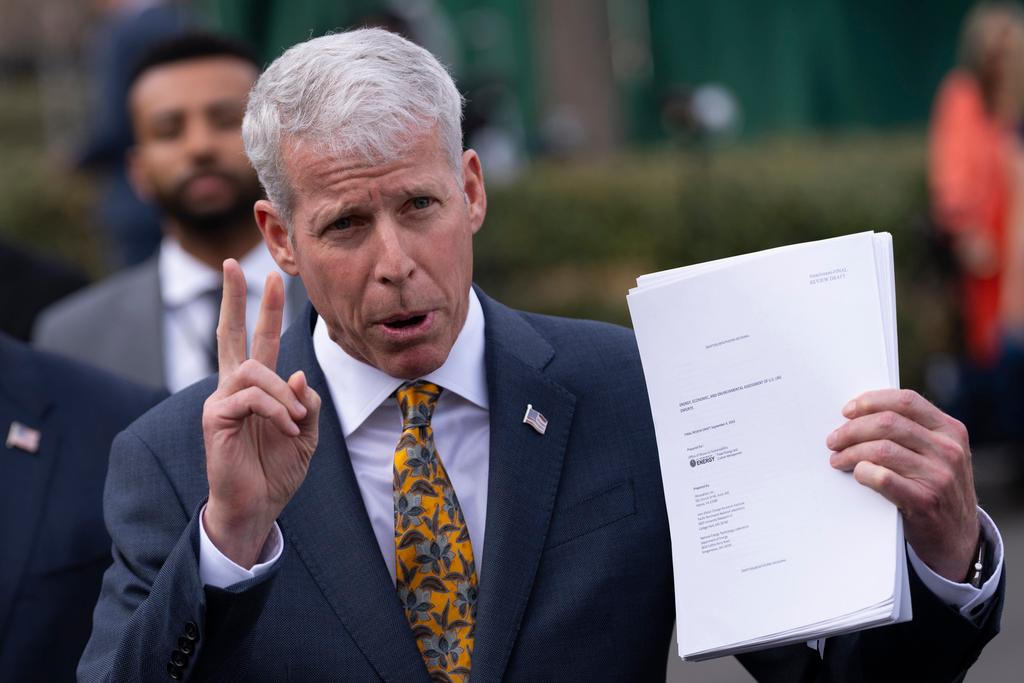
It’s not hard to pinpoint when U.S. Secretary of Energy Chris Wright catapulted himself—and his views on climate change—into the national spotlight.
It started with a corporate dust-up over jacket logos. In late 2020, a Texas oil and gas firm tried to order company jackets from The North Face, but the outdoor apparel giant refused because it didn't want its brand associated with fossil fuels.
At the time, Wright worked as the CEO of Liberty Energy, a Denver-based fracking services firm he founded a decade earlier. The company’s corporate headquarters are less than a mile from the VF Corporation, the parent company overseeing The North Face.
Fossil fuel advocates enlisted Wright to help call out the jacket rejection as a bit of hypocritical virtue signaling. He already had a reputation for using humor to confront his critics, having once filmed himself taking a shot of fracking fluid with his staff to show critics the solution was safe.
Wright worked with the Colorado Oil and Gas Association group to present The North Face with an “Extraordinary Customer Award,” lauding the company for making so many of its products out of hydrocarbons. He later amplified the message in viral YouTube videos and billboards in downtown Denver in the summer of 2021.
The campaign earned no shortage of local and national media coverage. Wright, a self-described “tech nerd turned entrepreneur,” leveraged the exposure to advance one of his favorite arguments: fossil fuels contribute the raw material and energy behind almost everything good about living in the 21st Century — including high-end puffy jackets.
“You can’t make a windmill, a solar farm, a nuclear power plant or a hydroelectric dam, for that matter, without oil and gas,” he told Fox News’ host Greg Gutfeld during an interview about the jacket spat. “I’m proud of that.”
Wright has a different message on climate change
The incident offered a preview of the rhetoric and showmanship Wright has brought to energy policy in the new Trump administration.
During his Senate confirmation hearing, Wright recalled how his initial interest in energy started with a passion for nuclear fusion. He left Denver to study the topic at MIT before researching solar energy during graduate school at the University of California, Berkeley.
Wright later made his fortune in the oil and gas industry after returning to Colorado. In 2011, he founded Liberty Energy, a company offering the kind of fracking services that have fueled the recent boom in fossil fuel production across North America. At the same time, he maintained an interest in alternative energy sources, investing in geothermal energy startup Fervo and sitting on the board of Oklo, a pioneer in advanced nuclear fission.
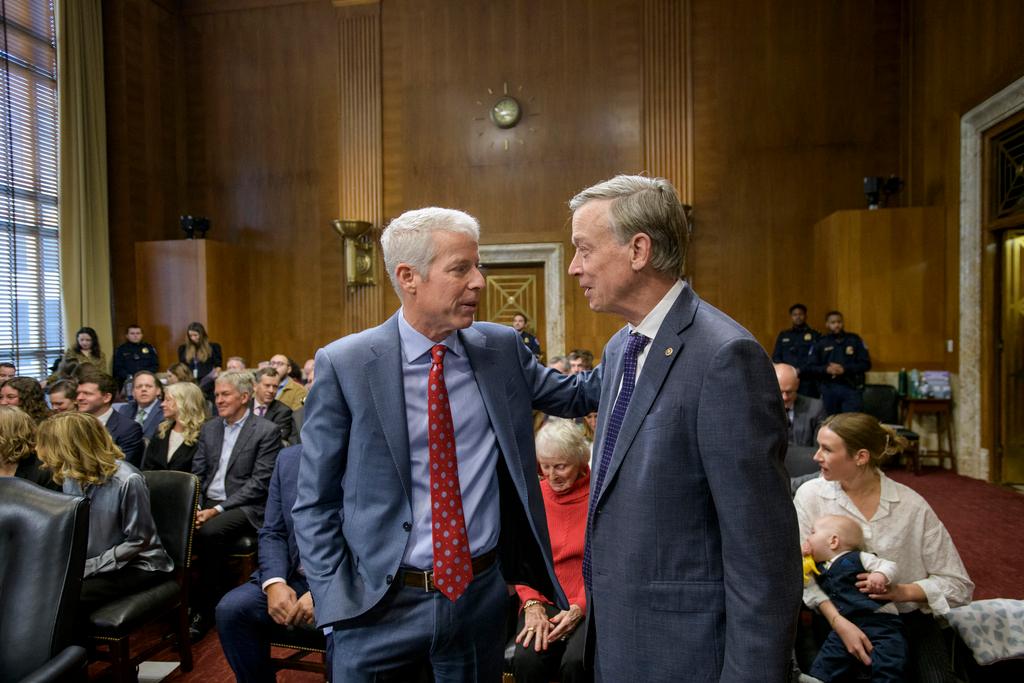
He also developed a distinct view on climate change during his career. Unlike previous Republican energy policy leaders, Wright acknowledges that burning fossil fuels has already increased global temperatures. He contends, however, that scientists have vastly exaggerated the consequences of climate change, and that continued human progress requires more oil, gas and coal development, not less.
“It is a global issue. It is a real issue. It's a challenging issue. And the solution to climate change is to evolve our energy system,” Wright said during his confirmation hearing in January.
That position helped him win confirmation votes from seven Senate Democrats, including Sen. John Hickenlooper and Sen. Michael Bennet. To explain their support, both Colorado senators released statements saying they don’t agree with Wright on everything, but respect his expertise in energy innovation and technology.
But Wright’s critics see his views on global warming as a dangerous and self-serving misinterpretation of climate science. In their view, the fundamental role of fossil fuels in modern life is precisely the problem. Without a rapid shift to other energy sources, humanity risks undoing the types of progress Wright and his allies love to celebrate.
“Chris Wright has a net worth of over $150 million,” said Margaret Kran-Annexstein, the director of the Colorado chapter of the Sierra Club. “He’s just out of touch with the everyday folks here in Colorado and the pretty extreme realities we’re facing from climate disasters and the harms of fossil fuel production.”
Wright did not respond to a request from CPR News for an interview about his thoughts on climate change.
The rise of “climate realism”
As a member of President Trump’s cabinet, Wright has found his biggest platform yet for the environmental views he detailed in countless past TED Talks, podcast appearances and op-ed pieces. He’s also given his thinking a new name: climate realism.
“Recently, I've been called a climate denier or climate skeptic,” he said during a keynote address at CERAWeek, a major oil and gas conference held in Houston in March. “This is simply wrong. I am a climate realist.”
He explained that the label categorizes him as someone willing to acknowledge the trade-offs of non-fossil fuel energy sources. By prioritizing wind and solar development, Wright said former President Joe Biden saddled U.S. residents with higher energy bills, and his administration made it harder for poorer countries to raise their standard of living by denying permits for liquefied natural gas export terminals.
Wright has worked to reverse those policies during the first 100 days of President Trump’s second term. As a part of a broader directive to “unleash American energy,” he’s approved new LNG export terminals, undone efficiency rules for home appliances and trumpeted the benefits of alternative energy sources like geothermal and nuclear.
His CERAWeek speech demonstrated a new way for Trump administration officials to discuss climate change, distilling ideas he’d explored at length in an 180-page Liberty Energy report last year.
In his writing, Wright concludes that climate change is real but not nearly the greatest threat to human life; energy poverty presents a far more pressing problem; and fossil fuels are essential to help the vast majority of the human population improve their lives.
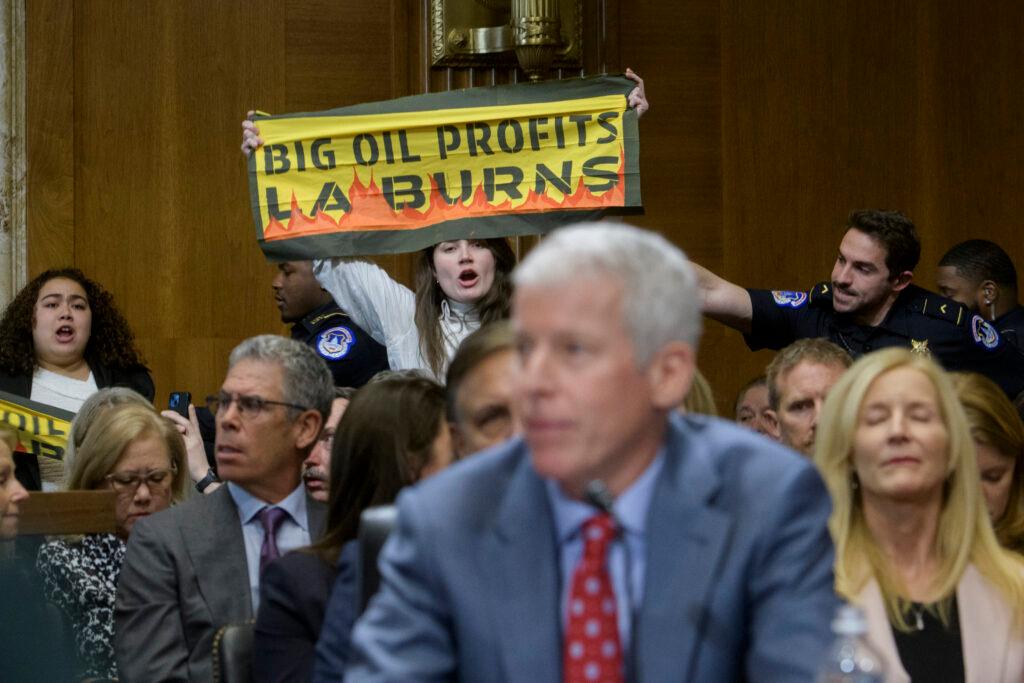
It’s a line of thinking Wright developed by reading writers like Bjorn Lomborg, a Danish statistician, and Roger Pielke, Jr., a former science policy scholar at the University of Colorado. Both have argued that climate scientists vastly overstate the threat posed by climate change while overlooking the immediate costs of their prescriptions.
Before Wright joined the Trump administration, he founded the Bettering Human Lives Foundation in January 2024 to help distribute cleaner cooking stoves in sub-Saharan Africa. Anne Hyre, the foundation’s executive director and Wright’s sister-in-law, said in January that the nonprofit has given nearly $700,000 in low-interest loans to help businesses in Ghana and Kenya. The non-profit’s board includes a retired president of Chevron, the CEO of Occidental Petroleum and Liberty Energy’s current CEO.
In her book "The Language of Climate Politics," Genevieve Guenther, a climate activist and researcher at The New School in New York City, identifies Wright’s thinking as a part of a rising trend of so-called “lukewarmerism.”
Unlike full-throated climate deniers, she told CPR News that “lukewarmers” acknowledge global warming is real, but argue the economic benefits offered by fossil fuels outweigh the consequences of living on a hotter planet.
“It's almost as if he has acknowledged that climate change is real just as a kind of feint to make him seem reasonable,” Guenther said. “What he’s really saying is one denier talking point after another: fires aren’t getting worse, hurricanes aren’t becoming more intense and flooding isn’t increasing.”
Downplaying climate risks
One particular point of skepticism for Wright is the link between climate change and wildfires.
On a recent visit to the National Renewable Energy Laboratory in Golden, Wright faced questions about the 2021 Marshall fire, which destroyed more than 1,000 homes and killed two people in Boulder County. He rebuffed any suggestion that global warming played a role in the disaster, saying wildfires “peaked over 100 years ago.” To blame climate change, he argued, is “simply not to look at the data.”

Wright laid out the argument in greater detail in the 2024 report. One graph credited to Robert Pielke, Jr. — the former CU Boulder science policy expert — shows the total acreage burned across the U.S. reached its highest levels in the early 1930s. That figure plummets throughout the 20th century due to the creation of the U.S. Forest Service and its fire suppression efforts.
Jennifer Balch, a fire scientist and the director of the Earth Lab at the University of Colorado Boulder, said the line of argument has a few major issues. The data behind the graph comes from flawed reports compiled by the federal government prior to the arrival of fire-tracking satellites in the 1980s.
Balch acknowledged that blazes may have covered vast landscapes in earlier centuries due to Native American prescribed burns and the overall lack of fire suppression. Over the last few decades, however, more reliable information has shown that climate change has led to a steady increase in the total area impacted by fires globally.
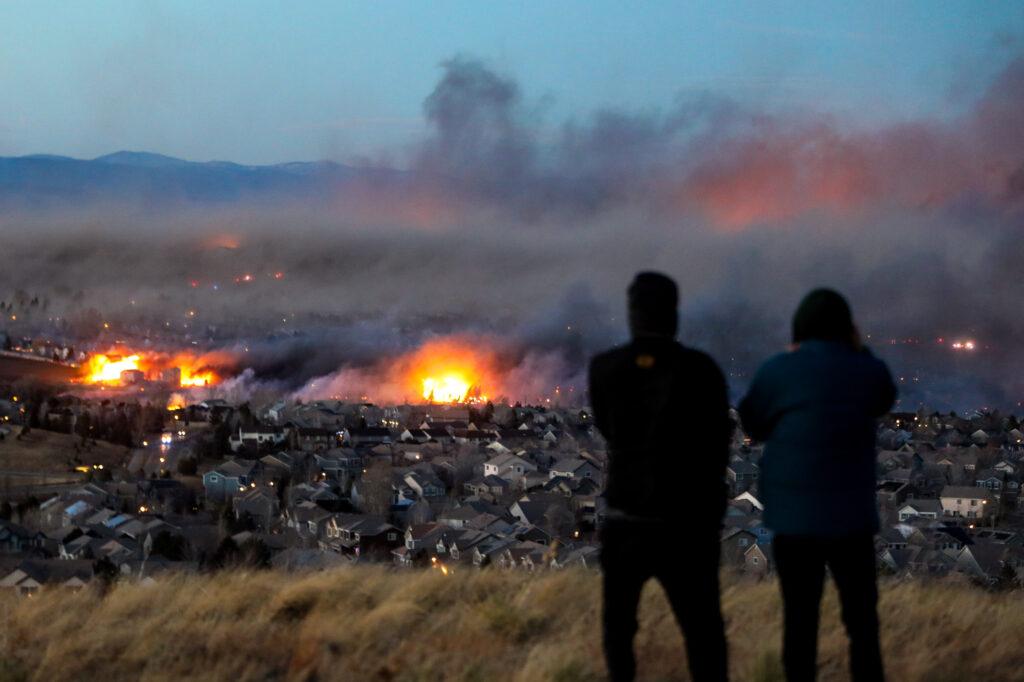
While Wright argues that better forest management is the key to protecting communities, Balch notes that the approach has its limits. The Marshall fire, for example, started in grasslands and stormed through suburban communities in the dead of winter. The disaster occurred amid record dry and warm weather, conditions she said climate change only made more likely.
“One of the ways to deal with it is to mitigate our fossil fuels,” Blach said. “It’s going to be a tragic scenario if we hand our children and our grandchildren a more fiery future because we didn't deal with it ourselves.”
Wright, meanwhile, insists future generations deserve the same cheap, abundant fossil fuels humanity enjoys today, and likely will need even a greater supply over the coming decades.
Ishan Thakore contributed reporting
| This story is part of a collection tracking the impacts of President Donald Trump’s second administration on the lives of everyday Coloradans. Since taking office, Trump has overhauled nearly every aspect of the federal government; journalists from CPR News, KRCC and Denverite are staying on top of what that means for you. Read more here. |
Funding for public media is at stake. Stand up and support what you value today.

